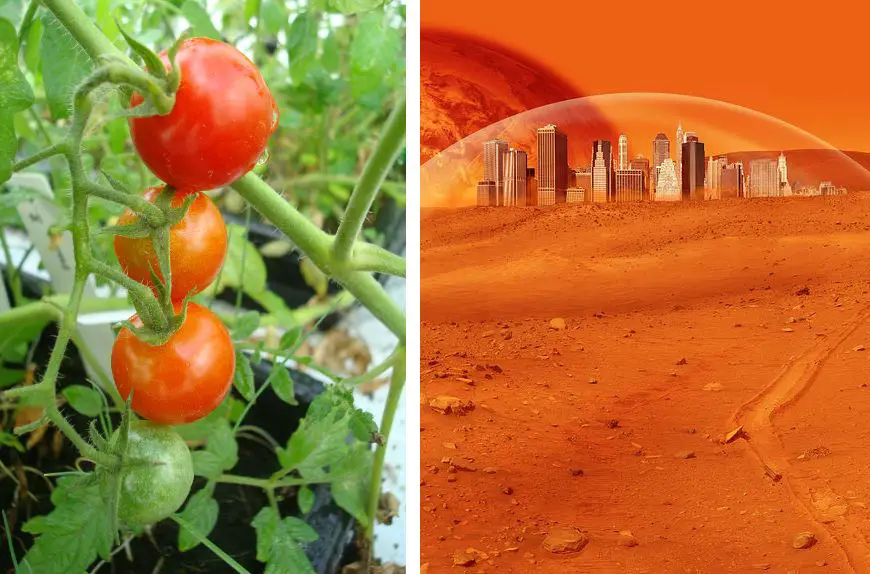Science & Tech
Scientists Have Successfully Grown Tomatoes, Rye and 8 More Food Crops in Mars-Equivalent Soil

You have probably heard about the Mars One space mission aimed to create a human settlement on the red planet. While the first crews will depart already in ten years from now, there are still many issues that need to be solved to make the mission happen. One of these is the possibility of growing edible crops on Mars soil so that the colonists have a constant source of food.
A new experiment demonstrated that this task is quite feasible as a group of researchers from Wageningen University & Research center in the Netherlands managed to grow and harvest 10 food crops from the Mars-equivalent soil.
The 10 crop species used in the experiment included peas, leek, tomatoes, rye, spinach, quinoa, chives, radish, garden rocket and cress. To mimic the conditions of the red planet, soil from a volcano on Hawaii was collected and then mixed with organic material, in particular, fresh cut grass. Shallow trays were used instead of pots to make it easier to water the crops. At the same time, Earth potting compost acted as a control during the experiment.
While the Mars soil simulant produced fewer crops than Earth soil, the difference was so small that it was concluded that under the proper conditions, the first Mars colonists would be able to grow crops on the red planet to feed themselves.
“That was a real surprise to us. It shows that the Mars soil simulant has great potential when properly prepared and watered,” lead researcher of the study Wieger Wamelink said in a press release.
To further study the potential of food cultivation in space, the research team also grew the same crop species in soil that mimicked the conditions of the Moon, using soil from a desert in Arizona. As a result, about half of the biomass was produced in comparison with the Mars-equivalent soil and Earth soil.
The results of the experiment seem quite exciting; however, there are a few factors that were not taken into account. The first one is the fact that the experiment did not simulate other conditions except for the soil itself. According to Wamelik, the first crops on Mars will be grown in underground rooms in order to protect them from the hostile environment. That’s why the crops grown for the purpose of the experiment were placed in a glass house under the Earth’s atmosphere and stable environmental conditions. Thus, the study did not take into account the factors such as space radiation and extremely low temperatures on the red planet.
Also, the experiment only succeeded in growing crops, but it is still unclear whether these crops would be safe to eat. They may, in fact, be poisonous due to the presence of heavy metals in the soil.
“The soils contain heavy metals like lead, arsenic, and mercury and also a lot of iron. If the components become available for the plants, they may be taken up and find their way into the fruits, making them poisonous,” explained Wamelink.
To investigate the question of food safety, the research team is crowdfunding further research and the experiments are planned for April.
In any case, the fact that the Mars soil is capable of growing food crops is exciting as it makes the dream of a human settlement on the red planet more real. It seems that the era of space colonization is closer than ever.
Typos, corrections and/or news tips? Email us at Contact@TheMindUnleashed.com
